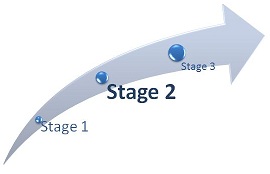 Senators Seek One Year Extension for Providers Not Ready for Stage 2 Meaningful Use
Senators Seek One Year Extension for Providers Not Ready for Stage 2 Meaningful Use
Last week 17 U.S. Republican senators, led by John Thune (R-SD), Chairman of the Senate Republican Conference, and Senator Lamar Alexander (R-Tenn), ranking member of the Health, Education, Labor and Pensions CommitteeJohn Thune (S.D.), sent a letter to HHS Secretary Kathleen Sebelius, seeking a one-year extension for providers to meet Stage 2 meaningful use requirements. The group has asked Secretary Sebelius to respond by October 8.
While not suggesting a delay of Stage 2 meaningful use for providers ready to make the transition and receive EHR incentive payments under the current 2014 and 2015 timeline, the Senators are seeking a one-year extension for those providers not yet ready to transition to Stage 2.
In the letter the Senators discuss three primary concerns in providers meeting the current Stage 2 meaningful use timeline. From the letter:
First, we are concerned that the regulatory structure of the program has created significant time pressure in 2014, and progressing to Stage 2 may not be feasible for all participants. In one year, over 500,000 hospitals and physicians are required to upgrade their existing technology to demonstrate new standards of “meaningful use” by the end of 2014 in order to be eligible for the corresponding incentive payments. Further, the vendors are under tremendous time pressures to ensure their products are certified for the 2014 Edition criteria and have sufficient time to upgrade their products for each hospital or physician client. This time pressure has raised questions about whether such a short period for Stage 2 is in the best long-term interest of the program.
Second, we are concerned that the onset of Stage 2 may further widen the digital divide for small and rural providers who lack the resources of large practices and may not be vendors’ top priorities. Even if certified products are available to them, simply receiving the software update does not satisfy meaningful use requirements for a hospital or eligible provider. They also need assistance learning how to use the new technology and time to address how they will achieve the new standards of meaningful use.
Third, an artificially aggressive Stage 2 timeline may have serious unintended consequences such as stifling innovation and increasing medical errors. Innovation in health information technology could be hampered, since vendors do not have the time to introduce administrative flexibility into their EHRs to best serve diverse practices. Medical errors could be increased inadvertently, because rushing through upgrades could introduce new risks in the technology that could cause errors or patient safety problems.
In response to the Senator’s letter, the College of Healthcare Information Management Executives (CHIME) urged HHS to extend Stage 2 Meaningful Use by one year. CHIME writes “the extension of Stage 2 [meaningful use] will give providers sufficient time to meet new program requirements, while maintaining software development and deployment deadlines, and it will better enable patients to receive the benefits of an e-enabled U.S. healthcare system.”
